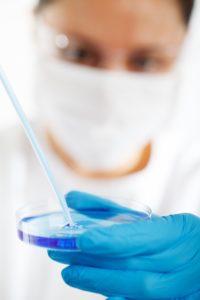
Researchers who reviewed existing research, looking for evidence to support the unproven theory that low levels of the brain chemical serotonin cause depression, have concluded the theory appears to be wrong.
According to the researchers’ paper, posted by the journal Neuroscience & Biobehavioral Reviews, the best available evidence appears to show that there is more serotonin in depressed individuals, not less.
If so, the psychiatric treatment of prescribing serotonin-boosting antidepressant drugs for depression may actually make it harder for depressed individuals to recover, according to lead author Paul Andrews, an assistant professor of Psychology, Neuroscience & Behaviour at McMaster University.
“It’s time we rethink what we are doing,” Andrews says. “We are taking people who are suffering from the most common forms of depression, and instead of helping them, it appears we are putting an obstacle in their path to recovery.”
Andrews, an evolutionary psychologist, has argued in previous research that antidepressants leave patients in worse shape after they stop using them, and that most forms of depression, though painful, are natural and beneficial adaptations to stress.
